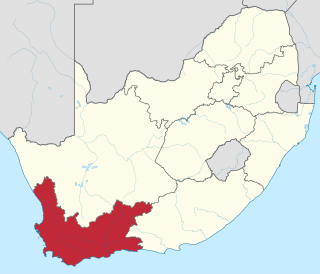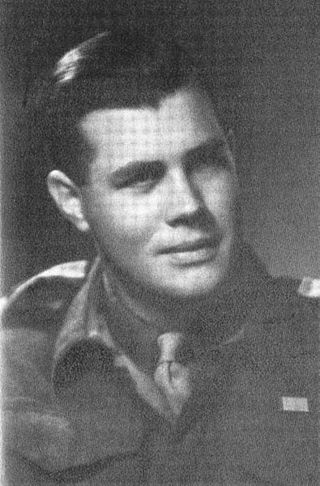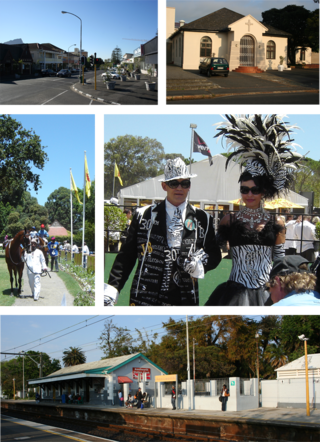
Cape Town is the legislative capital of South Africa. It is the country's oldest city and the seat of the Parliament of South Africa. Cape Town is the country's second-largest city, after Johannesburg, and the largest in the Western Cape. The city is part of the City of Cape Town metropolitan municipality.

Johan Anthoniszoon "Jan" van Riebeeck was a Dutch navigator, ambassador and colonial administrator of the Dutch East India Company.

Coloureds are multiracial people in South Africa, Namibia and to a lesser extent, Zimbabwe and Zambia. Their ancestry descends from the interracial marriages/interracial unions that occurred between Europeans, Africans and Asians. Interracial mixing in South Africa began in the Dutch Cape Colony in the 17th century when the Dutch men mixed with Khoi Khoi and Bantu women and Asian female slaves, producing mixed race children. Eventually, interracial mixing occurred throughout South Africa and the rest of Southern Africa with various other European nationals such as the Portuguese, British, Germans, and Irish, who mixed with other African tribes which contributed to the growing number of mixed-race people, who would later be officially classified as Coloured by the apartheid government.

The Western Cape is a province of South Africa, situated on the south-western coast of the country. It is the fourth largest of the nine provinces with an area of 129,449 square kilometres (49,981 sq mi), and the third most populous, with an estimated 7 million inhabitants in 2020. About two-thirds of these inhabitants live in the metropolitan area of Cape Town, which is also the provincial capital. The Western Cape was created in 1994 from part of the former Cape Province. The two largest cities are Cape Town and George.

Breyten Breytenbach was a South African writer, poet, and painter. He became internationally well-known as a dissident poet and vocal critic of South Africa under apartheid, and as a political prisoner of the National Party–led South African Government. He was also known as a founding member of the Sestigers, a dissident literary movement, and was one of the most important poets in Afrikaans literature.

Paarl is a town with 285,574 inhabitants in the Western Cape province of South Africa. It is the largest town in the Cape Winelands. Due to the growth of the Mbekweni township, it is now a de facto urban unit with Wellington. It is situated about 60 kilometres (37 mi) northeast of Cape Town in the Western Cape Province and is known for its scenic environment and viticulture and fruit-growing heritage. Paarl is a colonial town founded by Dutch colonists who seized Khoikhoi lands, many Khoi died in the colonisation process. Paarl's colonial society was dependent on enslaved people.

Stellenbosch is a town in the Western Cape province of South Africa, situated about 50 kilometres east of Cape Town, along the banks of the Eerste River at the foot of the Stellenbosch Mountain. The town became known as the City of Oaks or Eikestad in Afrikaans and Dutch due to the large number of oak trees that were planted by its founder, Simon van der Stel, to grace the streets and homesteads.

Bellville is a suburb of Cape Town, South Africa, and is part of the city's Northern Suburbs region. Having formerly been an independent city, it was later incorporated into the City of Cape Town Metropolitan Municipality, which is located in the Western Cape province of South Africa.

The Progressive Federal Party (PFP) was a South African political party formed in 1977 through merger of the Progressive and Reform parties, eventually changing its name to the Progressive Federal Party. For its duration, it was the main parliamentary opposition to apartheid, instead advocating power-sharing in South Africa through a federal constitution. From the 1977 election until 1987 it was the official opposition of the country.
The following lists events that happened during 1975 in South Africa.

Colin Wells Eglin was a South African politician best known for having served as national leader of the opposition from 1977–79 and 1986–87. He represented Sea Point in the South African Parliament from 1958–61 and from 1974–2004. Described by Nelson Mandela as "one of the architects of democracy", Eglin played a leading role in the drafting of the country's post-apartheid constitution.

The City of Cape Town is a metropolitan municipality that forms the local government of Cape Town and surrounding areas. As of 2022 it has a population of 4,772,846.

The South African Labour Party, was a South African political party formed in March 1910 in the newly created Union of South Africa following discussions between trade unions, the Transvaal Independent Labour Party, and the Natal Labour Party. It was a professedly democratic socialist party representing the interests of the white working class.

Kenilworth is a suburb in Cape Town, South Africa.
Afrikaners are a Southern African ethnic group descended from predominantly Dutch settlers first arriving at the Cape of Good Hope in 1652. Until 1994, they dominated South Africa's politics as well as the country's commercial agricultural sector.
Major Pieter Voltelyn Graham "P. V." van der Byl MC was a South African soldier and statesman. In South African politics, he was a member of the liberal South African Party and then the United Party from 1929 to 1966 and a member of Jan Smuts' cabinet from 1939 to 1948, during which time, he was minister of Native Affairs. Major Piet was a chevalier de la Légion d'Honneur, Honorary Colonel of the University of Cape Town Regiment, as well as receiving the Military Cross and the King George VI Coronation Medal.

The Cape Town Philharmonic Orchestra (CPO) is an orchestra based in Cape Town, Western Cape, South Africa.
The following is a timeline of the history of Cape Town in the Western Cape province of South Africa.

The Groote Kerk is a Dutch Reformed church in Cape Town, South Africa. The church is South Africa's oldest place of Christian worship. The first church on this land was built in 1678. Willem Adriaan van der Stel laid the cornerstone for the church. It was replaced by the present building in 1841 built by Herman Schuette and the original tower was retained. The pulpit is the work of Anton Anreith and the carpenter Jacob Graaff, and was inaugurated on 29 November 1789. The Groote Kerk lays claim to housing South Africa's largest church organ, which was installed in 1954
Benedicta Maria van Minnen is a South African politician and a member of the Democratic Alliance. She has been a member of the Western Cape Provincial Parliament. Previously, she served as a councillor in the City of Cape Town and as a Member of the National Assembly of South Africa.















